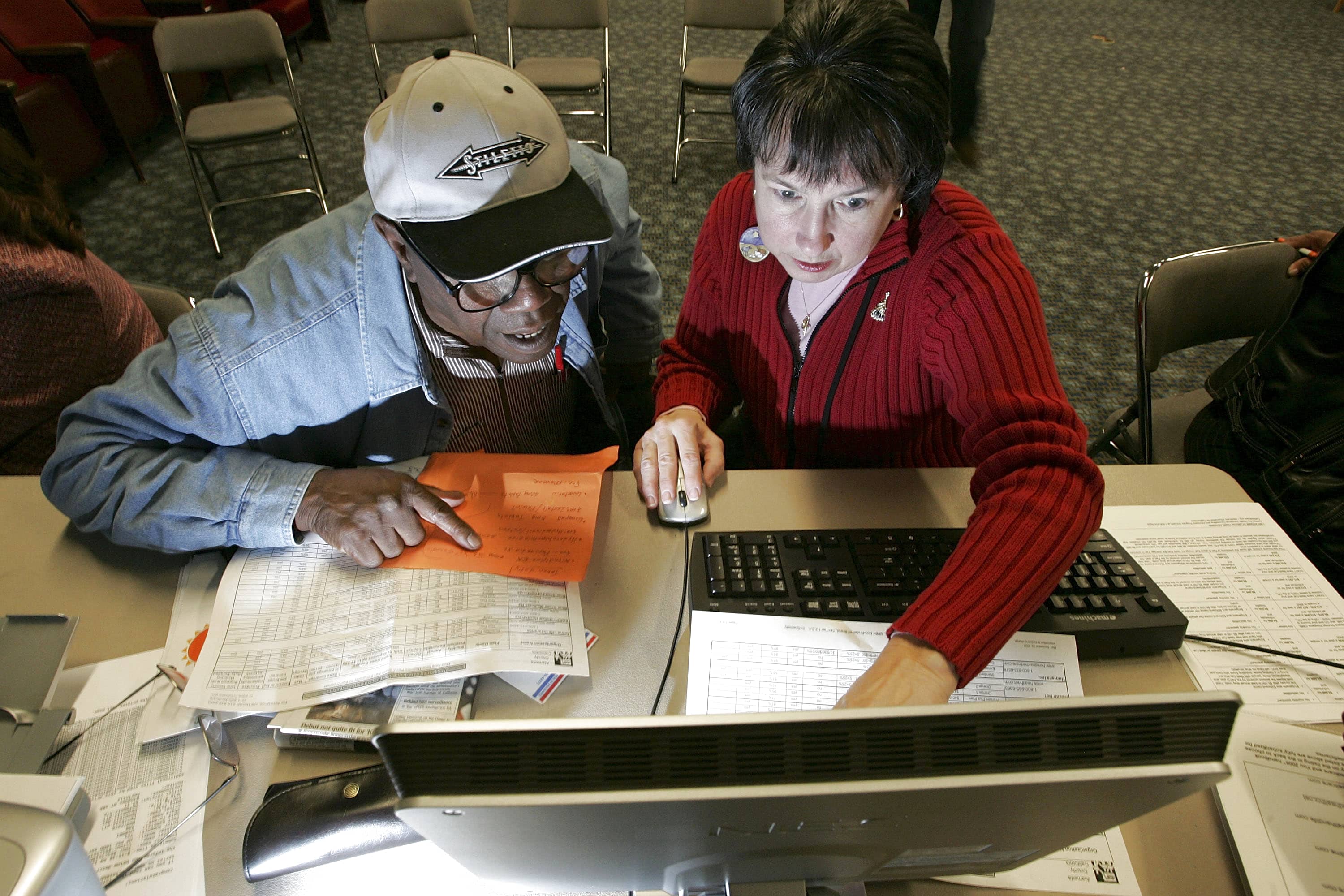A senior signing up for Medicare.
Justin Sullivan | Getty Images
Open enrollment season for Medicare enrollees can sometimes be overwhelming because of the wide variety of choices.
The average senior will have 47 different health plans to choose from for 2021, according to the Trump administration, up 20% from last year.
In most years, the majority of seniors turn to independent brokers and insurance agents for help trying to figure out which plan will work best for them.
“In our focus groups, people said it’s kind of nice to have an agent who can walk you through the options and steer you toward a certain plan,” said Tricia Neuman, executive director of the Kaiser Family Foundation program on Medicare policy. But, she adds, ”it’s much harder this year just because people are mostly home.”
With Covid-19 cases rising across the country, seniors are reluctant to seek help in person this year. In states with big surges, just 9% of Medicare recipients said they plan to meet with a broker in person this year, according to a consumer survey by health insurance consulting firm Deft Research. Two-thirds plan to seek advice on the phone, it said.
Medicare insurer Humana said it will offer socially distanced, in-person appointments with agents, “based on the guidance of local health officials,” according to a company press release. Rival UnitedHealth Group is moving its enrollment efforts online.
“We hold a lot of community meetings across the country during open enrollment … (but) we’re expecting to do many more of those in a virtual setting,” said Tim Noel, CEO of UnitedHealthcare Medicare and Retirement plans. He said Zoom-style meetings have been popular with brokers and seniors. “It’s similar to what we’re seeing in telehealth.”
Online health insurance brokerages are expecting they’ll see a surge in demand for phone consults when Medicare open enrollment begins later this month. They have been expanding their staffing over the summer, shifting their agents from call centers to systems at home, and retooling their websites.
“We’re going to try to leverage technology as much as possible to the process to make things more efficient … with things like voice signatures for people completing and application, and DocuSign capability in multiple languages that allow our brokers to complete sales without having to interact in a face-to-face environment,” said Clint Jones, co-founder and CEO of GoHealth.
To help streamline phone discussions with its brokers, eHealth is launching a new customer center where Medicare enrollees can create a secure permanent profile with information about their current health plan, doctors and medications to help make comparing new plan options easier.
“We obviously didn’t know when we were building this that we’d be launching it right at a time when seniors are starting to get more comfortable shopping online and being less comfortable with physical meetings,” said eHealth CEO Scott Flanders.
While seniors can’t start signing up for new plans until Oct. 15, they can browse plan options now. Like the online brokers, the Trump administration has expanded plan finder and comparison tools on Medicare.gov to help seniors research coverage options.
Yet, typically, very few seniors actually change plans in any given year. A Kaiser Family Foundation analysis found just 10% of Medicare Part D and 8% of Medicare Advantage enrollees voluntarily switched coverage during open enrollment in 2016. They are automatically re-enrolled in their current plan if they don’t make a choice.
“I think this could be a year where people are even more likely to stick with what they have than make a switch,” said Neuman. “There’s so much worry and anxiety generally right now that I think this might be too tall an order for many people.”
Medicare open enrollment runs through Dec. 7.
